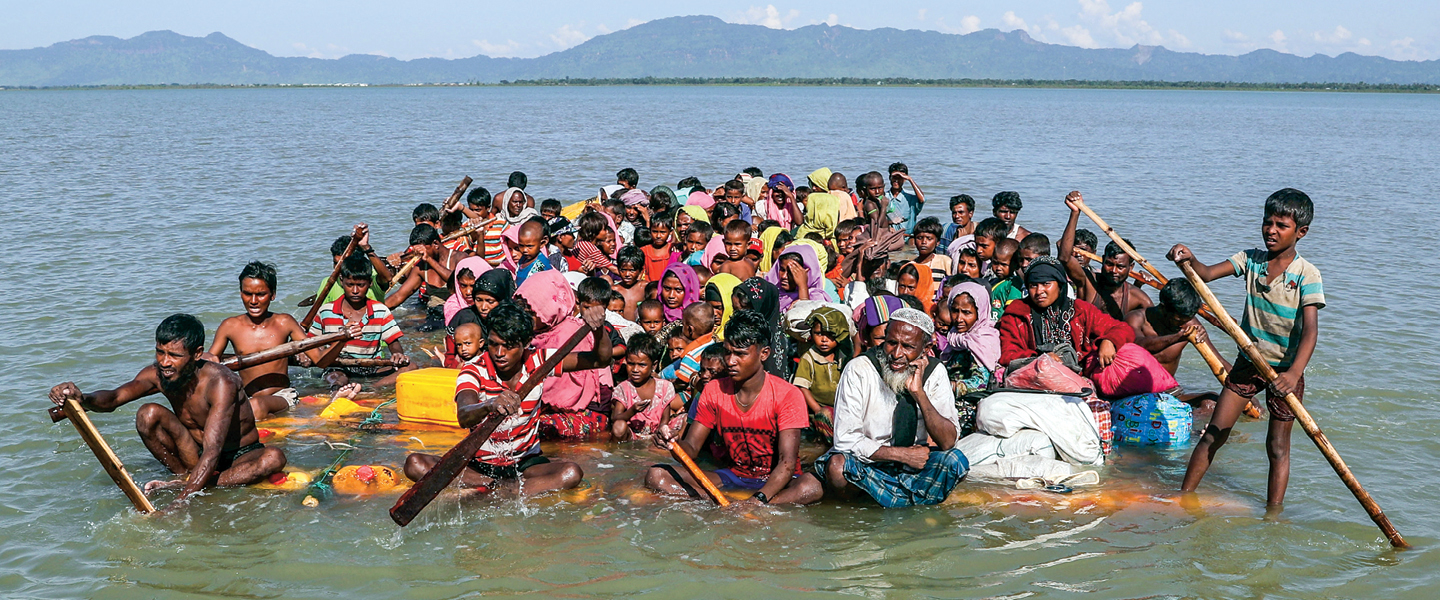As her village burned behind her, a young woman named Rajuma was approached by a pack of soldiers. They tore her screaming baby out of her arms, hurled the infant boy into a fire, and dragged Rajuma off.
Survivors of the attack, which happened in the nation of Myanmar, say they saw government soldiers stabbing babies, burning entire families in their homes, and rounding up dozens of unarmed men and shooting them, execution-style.
“People were holding the soldiers’ feet, begging for their lives,” Rajuma says. “But they didn’t stop; they just kicked them off and killed them. They chopped people, they shot people, they raped us, they left us senseless.”
Rajuma is a Rohingya Muslim. The Rohingya are a minority group from Myanmar (also known as Burma) that has long been persecuted by the majority population, which is Buddhist. The Rohingya have lived there for centuries, long before the country gained independence from the British in 1948.
As her village burned behind her, a young woman named Rajuma was approached by a pack of soldiers. They tore her screaming baby out of her arms, threw the infant boy into a fire, and dragged Rajuma off.
The attack happened in the nation of Myanmar. Survivors say they saw government soldiers stabbing babies and burning entire families in their homes. They say the soldiers rounded up dozens of unarmed men and shot them, execution-style.
“People were holding the soldiers’ feet, begging for their lives,” Rajuma says. “But they didn’t stop; they just kicked them off and killed them. They chopped people, they shot people, they raped us, they left us senseless.”
Rajuma is a Rohingya Muslim. The Rohingya are a minority group from Myanmar (also known as Burma). They’ve long been persecuted by the majority population, which is Buddhist. The Rohingya have lived there for centuries. They were there long before the country gained independence from the British in 1948.

